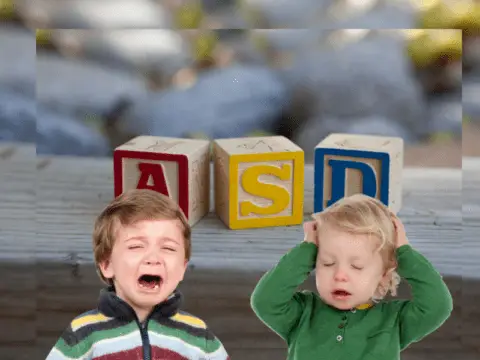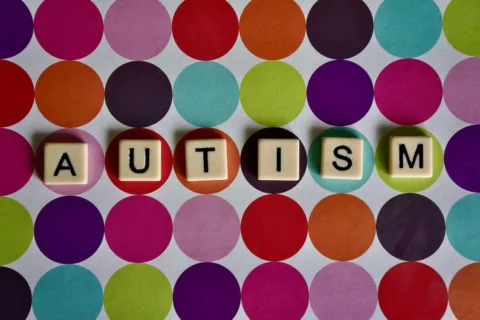There’s no denying that every child is unique, but if you have a 6-month-old who seems to show signs of autism, you likely want to know what’s going on and if it could mean your child will have autism later in life. The good news is that there are some telltale signs you can look for to help determine if your child might have the disorder.
If your 6-month-old doesn’t seem to notice or care about people or other children or does not engage with you socially, it could be a sign that your child might be on the autism spectrum. It’s important to note, however, that there can be a range of reasons for any developmental delays. If you have concerns about your child’s development and motor skills, it’s important to consult with a healthcare professional.
Here are 19 Signs of autism in 6 month old baby :
- Eye contact: Limited or no eye contact is a common sign of autism in 6-month-olds. A child with autism may not look at you when you enter the room or may turn away from you if you try to engage them. This is especially true when other things are going on around them that they find more interesting.
- Verbal communication: Babies with autism may not babble or coo like other babies does at this age. They may only make a few sounds, or not make any at all. They may have some words in their vocabulary, but not many. If they do speak, it is often repetitive or nonsensical phrases that aren’t related to what you are saying.
- Social interaction: Babies with autism may not show interest in social interaction, like making faces or laughing. They may not seem to notice you when you talk to them and may ignore your attempts at play. They may not look at you when they are spoken to or respond in a way that shows that they know what is happening around them.
- Sensory sensitivity: Babies with autism may be overly sensitive to certain sounds or textures. They may have an extreme reaction to sounds, lights or smells that most other babies would find only mildly irritating. They may be bothered by the feel of certain fabrics or textures against their skin.
- Repetitive behaviours: Babies with autism may exhibit unusual or repetitive behaviours, like rocking or flapping their hands. You may notice that your baby does things like spinning objects or lining up toys in a certain order. These behaviours are called self-stimulatory behaviour and are common among children with autism.
- Routine disruption: Babies with autism may be easily upset or thrown off when their routines are disrupted. They may have a hard time when you switch up their eating, playing or sleeping routines. If they’re used to being rocked at night before bed, for example, they could be very upset if someone else tries to give them a different kind of soothing.
- Tremors or seizures: Babies with autism may experience tremors or seizures. Some parents report that their infants were diagnosed with infantile spasms, which are a type of seizure caused by brain abnormalities. Epilepsy is more common in individuals with autism.
- Feeding problems: Babies with autism may have difficulty nursing or bottle-feeding. If they are breastfed, they may feed only one side at a time or nurse only in certain positions. They may also have trouble sucking from a bottle or accepting solid foods.
- Poor motor skills: Babies with autism may have delays in the development of their motor skills, including crawling, walking, and fine motor skills such as picking up small objects
- Lack of interest in toys: Babies with autism may not show interest in playing with toys or other objects. They may also have trouble understanding how to interact with toys, such as playing with a ball. They may not enjoy normal infant play activities like peekaboo or patty-cake. Instead, they may prefer to study objects in detail.
- Unusual vocalizations: Babies with autism may make unusual vocalizations, such as babbling or cooing in an unusual tone or rhythm, which is one potential sign of autism in babies, although it is not an indicator on its own.
- Unusual responses to being touched: Babies with autism may have unusual responses to being touched, like pulling away or stiffening up. They may not show interest in being held or cuddled. Some babies with autism may have a hypersensitivity to touch, while others may be less responsive to touch. For example, a baby with autism may react strongly to being touched, such as flinching, tensing up, or crying. On the other hand, they may show little to no response to being touched, appearing indifferent or uninterested. It’s also worth noting that many babies and young children may exhibit unusual reactions to touch or other stimuli as a part of typical development, and not all such reactions indicate the presence of autism.
- Unusual responses to sounds: Babies with autism may show either an increased or decreased sensitivity to sounds, or a mix of both. For example, a baby with autism may be hypersensitive to certain sounds, such as loud noises or high-pitched sounds, and may become upset or cover their ears in response
- Unusual facial expressions: Babies with autism may have may show reduced facial expressions or atypical facial expressions, such as a lack of smiling or a flat affect. They may also have difficulty responding to social cues.
- Unusual hand movements: Babies with autism may show repetitive or stereotyped movements, such as hand flapping, finger flicking, or twisting their wrists. These movements may be performed rhythmically or repetitively and may be accompanied by other behaviours such as rocking or spinning.
- Difficulty understanding language: Babies are usually very social. Babies with autism may have difficulty understanding simple language and may not respond when spoken to.
- Lack of interest in exploring: Babies with autism may not show interest in exploring their environment or playing with toys. They may focus on a single item or toy. In general, children with autism may show limited interest in exploring their environment or playing with toys in imaginative ways. Studies have examined the lack of interest in exploration or play in children with autism. For example, a 2018 study published in the journal Autism Research found that children with autism showed less exploration during play than typically developing children and that this lack of exploration was related to deficits in social communication skills.
- Lack of mimicking: Babies with autism may not mimic facial expressions or gestures like other babies do. There has been a significant amount of research on autism and the lack of imitative behaviour in babies and young children with the condition. A 2016 study found that infants who later went on to be diagnosed with autism showed reduced imitative behaviours at 12 months of age compared to typically developing infants. This lack of imitation was also related to deficits in social communication skills, such as responding to their name and using gestures to communicate.
- Difficulty transitioning between activities: Babies with autism may have difficulty transitioning between activities, like going from playing to eating. Children with autism may have a preference for routine and structure and may struggle with unexpected changes or transitions between activities. Research has shown that difficulties with transitioning between activities are a common feature of autism. For example, a 2013 study found that children with autism experienced more difficulty transitioning between activities compared to typically developing children and that these difficulties were associated with greater levels of disruptive behaviour.




![# Managing Repetitive Speech in Autism: Strategies and Techniques Repetitive speech in individuals with Autism Spectrum Disorder (ASD) can present unique challenges. However, with appropriate strategies and approaches, improvements can be made to better manage this aspect of ASD. Here are some strategies and techniques that can influence positive changes: ## 1. Functional Communication Training (FCT) FCT is a technique that guides an individual to replace problem behavior, like repetitive speech, with more appropriate and effective communication behavior. This could range from words and sentences to other means like sign language or the use of communication tools. **Example:** If an individual repeats a phrase like, "I want cookie," teach them to express what they want through other communicative methods like pointing to pictures or using an app on a tablet. ## 2. Prompt and Fading Technique This involves the use of verbal or physical prompts to guide correct behavior, with the prompt's intensity gradually reduced (or "faded") over time as the individual begins to respond independently. **Example:** You might initially hand-over-hand help them point to a picture of the object they desire, gradually reducing your level of assistance as they begin to master the skill. ## 3. Modeling Appropriate Speech Modeling involves the caregiver exhibiting appropriate speech behavior, then encouraging the individual to imitate it. **Example:** You could say a sentence like, "I would like some water, please" and ask the individual to repeat the sentence. Over time, this can help form patterns of more appropriate speech. ## 4. Scripting Scripting can help the individual learn more complex conversations. Scripts are learned and practiced phrases or sentences that can be used in everyday social interaction. **Example:** A script might be: "Hi, my name is \[name]. How are you today?" As the individual becomes comfortable with this script, you can introduce more complex scripts to cover different social scenarios. ## 5. Reinforcement Strategy This strategy reinforces the completion of an appropriate behavior by delivering a reward, which can motivate the individual to repeat that behavior. **Example:** If the individual successfully uses a newly learned sentence in conversation without falling into repetitive speech, they might be reinforced with verbal praise, a favorite activity, or a small treat. ## 6. Speech and Language Therapy Speech and language therapists use techniques to enhance language development and improve communication skills. This can be very beneficial in managing repetitive speech in individuals with ASD. While these are broad strategies, every person with ASD has unique needs and abilities. It's important that any intervention should be personalized and carried out at the individual's pace. Consult a healthcare provider or speech and language therapist for a tailored approach to managing repetitive speech.](https://i-autism.com/wp-content/uploads/2023/12/Repetitive-Speech-in-Autism-Strategies-and-Techniques-480x360.png)




